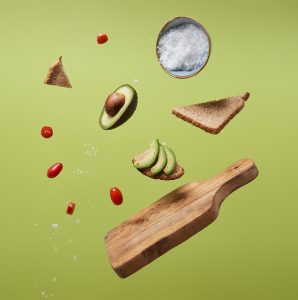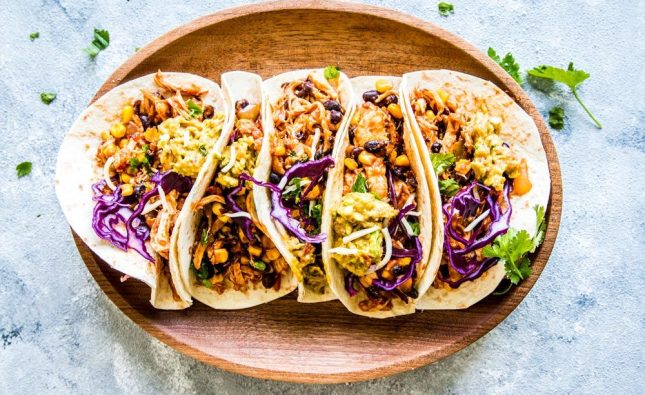
Introduction: Metabolism’s Potential
Welcome, dear readers, to a culinary journey like no other. I’m Chef Michel Leblanc, and I’ve spent decades perfecting the art of cooking. But today, I’m not here to share recipes; I’m here to help you master a different art—the art of tailoring your daily caloric intake to achieve a healthier and more vibrant lifestyle.
In collaboration with leading nutritionists and experts, I’ll guide you through the intricacies of metabolism and how understanding it can transform your life. So, let’s embark on this journey together, shall we?
Understanding Your Metabolism
The Metabolism Demystified
Before we delve into the nitty-gritty details, let’s demystify metabolism. Your metabolism is the engine that drives your body, determining how efficiently it burns calories and fuels your daily activities. It’s the secret behind those who seem to effortlessly maintain their ideal weight and energy levels.
Meet Our Knowledge Source: Dr. Emily Rodriguez, PhD in Nutrition
To unravel the mysteries of metabolism, we turn to Dr. Emily Rodriguez, a distinguished expert with a PhD in Nutrition. With over two decades of research in her repertoire, Dr. Rodriguez is the ideal guide for our journey into the world of metabolic mastery.
Tailoring Your Daily Caloric Intake
The Golden Equation: Calories In vs. Calories Out
Understanding the fundamentals is crucial. Dr. Rodriguez explains that your daily caloric intake should align with your energy expenditure. It’s a delicate balance, and here’s where many stumble. Let’s break it down:
Table 1: Caloric Intake vs. Energy Expenditure
| Aspect | Daily Caloric Intake | Energy Expenditure |
|---|---|---|
| Sedentary Lifestyle | 1,800 – 2,200 calories/day | Minimal activity |
| Moderate Activity | 2,200 – 2,800 calories/day | Regular exercise |
| Active Lifestyle | 2,800 – 3,500+ calories/day | High-intensity workouts |
Meal Planning Made Easy
Chef Michel Leblanc’s Pro Tip: Balancing your daily caloric intake doesn’t mean sacrificing flavor. Instead, it’s about making smart choices. Opt for nutrient-dense foods like lean proteins, whole grains, and plenty of fruits and vegetables. Create balanced, delicious meals that leave you satisfied and energized.
Fine-Tuning Your Metabolism
The Role of Macronutrients
Not all calories are created equal. Dr. Rodriguez emphasizes the importance of macronutrients: carbohydrates, proteins, and fats. Understanding their roles can help you fine-tune your metabolism.
Table 2: Macronutrients and Their Roles
| Macronutrient | Role in Metabolism | Dietary Sources |
|---|---|---|
| Carbohydrates | Primary energy source | Whole grains, fruits |
| Proteins | Muscle building and repair | Lean meats, dairy |
| Fats | Energy storage and insulation | Avocado, nuts, olive oil |
Timing Matters: Meal Frequency
Chef Michel Leblanc’s Pro Tip: Don’t forget about meal frequency. Spacing your meals evenly throughout the day keeps your metabolism revved up and prevents energy crashes.
Practical Strategies for a Healthier Lifestyle
Stay Hydrated
Hydration is often underestimated but plays a significant role in metabolism. Water is essential for digestion and nutrient absorption.
Quality Sleep
A lack of sleep can disrupt your metabolism. Aim for 7-9 hours of quality sleep each night.
Manage Stress
Stress can wreak havoc on your metabolism. Incorporate stress-relief practices like meditation or yoga into your routine.
Conclusion: Your Metabolic Mastery Journey
In closing, mastering your metabolism is an art that requires understanding, patience, and a dash of culinary creativity. With the guidance of Dr. Emily Rodriguez and the culinary expertise of Chef Michel Leblanc, you’re now equipped to tailor your daily caloric intake for a healthier lifestyle.
Remember, it’s not just about counting calories; it’s about nourishing your body, enjoying delicious meals, and feeling your best every day. So, embark on this journey, experiment with your daily caloric intake, and savor the results of a more vibrant and energized you.











